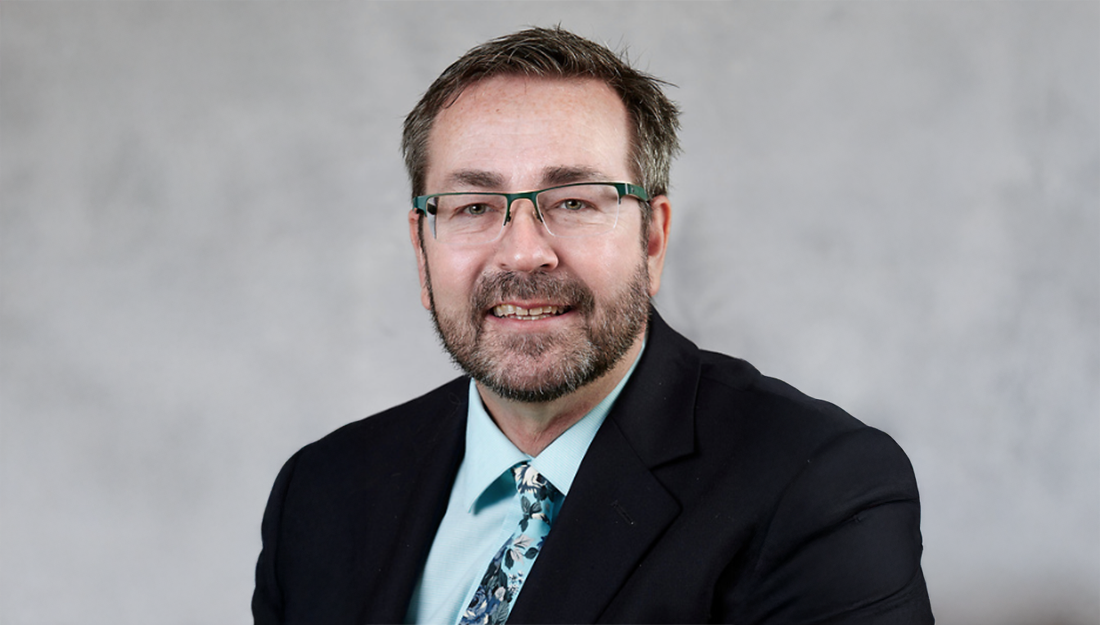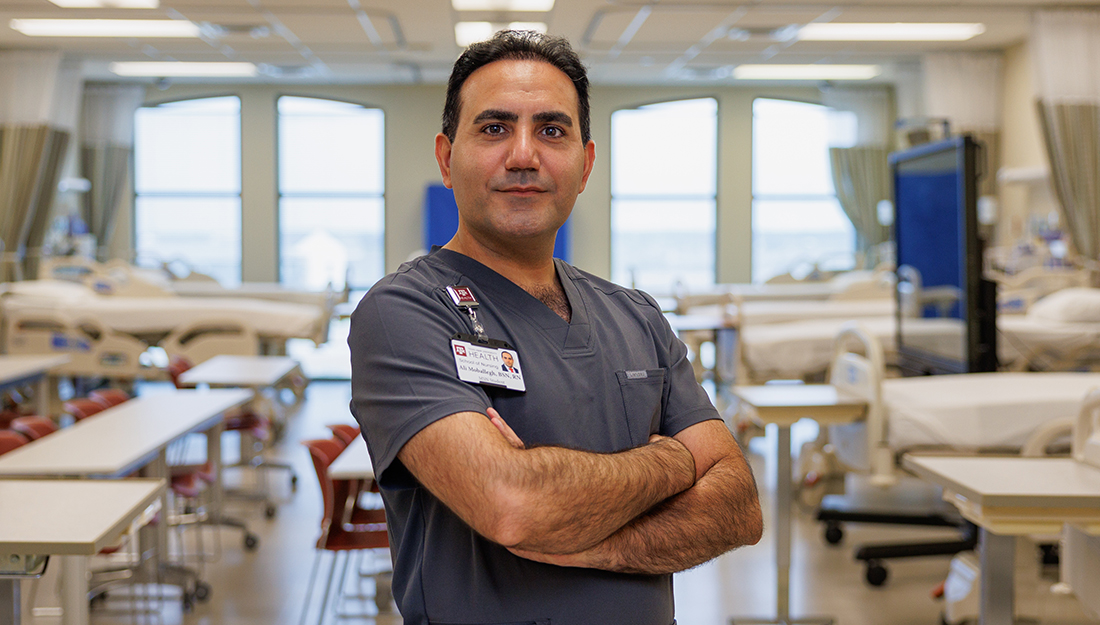From emergency room to courtroom: Meeting the need for forensic nurses in Texas

“I’ll go, if you go.”
And just like that, five words forever changed Trisha Sheridan’s mission in life. Sheridan, clinical assistant professor at the Texas A&M Health Science Center College of Nursing and one of the few practicing certified forensic nurses in the Brazos Valley, started her nursing career working as a women’s health nurse practitioner in a small clinic in Washington. The patient that uttered those five simple, yet life-changing, words was a victim of rape and asked that Sheridan accompany her to the hospital for a medical examination.
“I can still vividly remember arriving to the emergency room with the patient to find that there was no forensic nurse on staff; and while there was a nurse who had been trained to collect a ‘rape kit,’ she had not been trained to do the pelvic exam,” Sheridan said. “I was horrified. It was then that I realized that my true calling in life was to make a difference in the lives of such victims of abuse.”
Now Sheridan and others at the Texas A&M College of Nursing are looking to change the lives of countless patients and future nurses through a first-of-its kind Department of Forensic Nursing in Texas. As first responders to victims of interpersonal violence, including sexual abuse, domestic violence and child and elder abuse, forensic nurses provide specialized care and consolation, collect and preserve evidence and give testimony that can be used in a court of law to convict perpetrators. Ultimately, forensic nurses bridge the gap between medicine and the administration of justice.
Unfortunately, as Sheridan learned all too well, there are simply not enough forensic nurses to address patient needs when, for example, Texas has some of the highest rates of child abuse and sexual assault in the country. In fact, statewide statistics in the areas directly impacted by forensic nurses are absolutely staggering:
- One rape is committed each hour in Texas with over 8,000 per year reported. The reported rate was 35.3 sexual assaults for every 100,000 Texans with an underreported rate of 50 percent.
- Each year more than 65,000 cases of child abuse are confirmed in Texas. The state’s proximity to the border also increases its rate of victims of sex trafficking.
That’s why Texas A&M Health Science Center is seeking state support to advance efforts that would bring more forensic nurses to Texas. The college’s long-term vision includes providing specialized training of nurses on sexual assault, domestic violence, child abuse and neglect, elder mistreatment, death investigation, corrections, and nursing in the aftermath of mass disasters.
The college currently offers an online forensic nursing course, but plans to expand its offerings to include a post-baccalaureate certification in forensic nursing, as well as continuing education to help SANE nurses keep their certification. Additionally, the college plans to add a unique master’s degree that would focus on four areas of study: sexual assault, domestic violence, child abuse and neglect, and elder mistreatment.
“Nurses may offer the only opportunity some victims have to escape violent situations,” said Nora Montalvo-Liendo, an assistant professor who will lead the domestic violence component of the new degree program. “By educating our students, we are equipping communities with health care professionals prepared to not only to recognize signs of violence, but help victims seek help in meaningful, effective ways.”
Currently, no such program exists in Texas and there are only about a dozen such programs in the country.
“Forensic nursing is a powerful resource for anti-violence efforts,” said Sharon Wilkerson, PhD, RN, CNE, ANEF, dean of the Texas A&M College of Nursing. “Not only are we seeking to educate our students about data collection and preservation of evidence, we want to prepare nurses to treat the physical and mental trauma associated with victims of violence, and communicate their experiences as expert medical witnesses. There are simply not enough forensic nurses in this state, and we want to change that.”
As part of its 2016-2017 appropriations request to the Texas Legislature, the health science center is requesting funding to develop a comprehensive statewide initiative that – in addition to advancing forensic nursing degree offerings – would drive a continuing education program for all Emergency Department nurses as mandated by Texas law. Additionally, the initiative would include a program to work with community partners, such as law enforcement, educators, medical professionals, and advocates, to recognize at-risk populations and provide educational opportunities to stop the cycle of violence. The requested appropriations would support training programs, outreach to remote locations, web-based training modules, specialized diagnostic equipment, and support personnel to advance the initiative.
Creation of a statewide forensic nursing department is of particular interest to Texas A&M Health Science Center Chief Executive Officer Brett P. Giroir, MD, who began his career as a pediatric critical care specialist, and frequently treated cases of severe child abuse that often led to permanent disability or even death.
“Emergency rooms and pediatric intensive care units across the country treat a staggering number of young abuse victims,” Giroir said. “As physicians, our primary focus must be stabilizing the patient, but we are all keenly aware that the damage done is not limited to physical issues. The nurses on our health care team serve as an invaluable resource to these patients, their loved ones, and officials investigating the case by offering unparalleled care, support, guidance, and information from the moment the patient arrived until the case is resolved.”
While a comprehensive department of forensic nursing is the end goal, Sheridan and Giroir’s experiences confirm the urgent need for additional forensic nurses on the frontlines. Therefore, faculty members in the College of Nursing have already started developing curriculum for the new academic programs to present to the Texas Higher Education Coordinating Board.
“One of the tenants of Texas A&M Health Science Center is to train the highest quality, most compassionate health care providers in the nation, who in addition are leaders within their professions,” Giroir said. “I couldn’t think of a more appropriate description for future graduates of these forensic nurse programs – compassionate leaders.”
Wilkerson said the college’s goal in this area is simple, yet profound: to provide compassionate patient-centered care and give law enforcement accurate information to pursue perpetrators.
“It is this crossroads of health and justice where forensic nurses can make a difference,” Wilkerson said. “We want to equip the state with advocates against violence and agents of care – that’s an invaluable resource for all Texans.”
Find out what forensic nursing is all about in this short Q&A.
Media contact: media@tamu.edu


